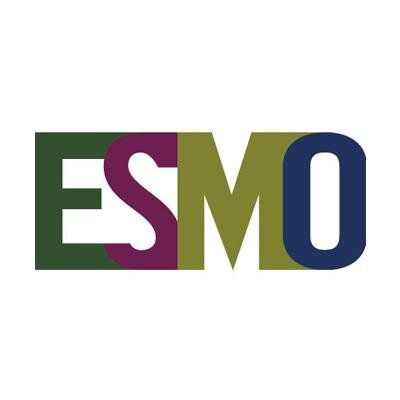预约演示
更新于:2025-05-07

European Society for Medical Oncology
更新于:2025-05-07
概览
关联
2
项与 European Society for Medical Oncology 相关的临床试验NCT01077427
A Randomized Two-armed Open Study on the Adjuvant Therapy in Patients With R0/R1 Resected Pancreatic Carcinoma With Gemcitabine Plus Capecitabine (Arm GC) vs. Gemcitabine Plus Cisplatin With Regional Hyperthermia (Arm GPH)
Improvement of the clinical outcome in patients with resectable pancreatic carcinoma through an intensified adjuvant treatment with gemcitabine, cisplatin and regional deep hyperthermia as compared to standard chemotherapy.
开始日期2012-03-01 |
申办/合作机构 |
NCT00003052
Randomized Study Comparing Neoadjuvant Chemotherapy Etoposide + Ifosfamide + Adriamycin (EIA) Combined With Regional Hyperthermia (RHT) Versus Neoadjuvant Chemotherapy Alone in the Treatment of High-Risk Soft Tissue Sarcomas in Adults
RATIONALE: Drugs used in chemotherapy use different ways to stop tumor cells from dividing so they stop growing or die. Hyperthermia therapy kills tumor cells by heating them to several degrees above body temperature. It is not known whether receiving chemotherapy plus hyperthermia is more effective than receiving chemotherapy alone in treating patients with soft tissue sarcoma.
PURPOSE: This randomized phase III trial is studying combination chemotherapy alone to see how well it works compared to combination chemotherapy and hyperthermia therapy in treating patients with soft tissue sarcoma.
PURPOSE: This randomized phase III trial is studying combination chemotherapy alone to see how well it works compared to combination chemotherapy and hyperthermia therapy in treating patients with soft tissue sarcoma.
开始日期1997-07-01 |
申办/合作机构  Eortc Eortc [+1] |
100 项与 European Society for Medical Oncology 相关的临床结果
登录后查看更多信息
0 项与 European Society for Medical Oncology 相关的专利(医药)
登录后查看更多信息
70
项与 European Society for Medical Oncology 相关的文献(医药)2025-03-01·Annals of Oncology
ESMO Global Consortium Study on the availability, out-of-pocket costs, and accessibility of cancer medicines: 2023 update
Review
作者: Latino, N J ; Saar, M ; Trapani, D ; de Vries, E G E ; Bricalli, G ; Curigliano, G ; Gyawali, B ; Cherny, N I ; Meier, K ; Blay, J-Y ; Galotti, M ; Roitberg, F
2024-05-01·ESMO Open
ESMO expert consensus statements on the screening and management of financial toxicity in patients with cancer
Review
作者: Ripamonti, C I ; Pentheroudakis, G ; Winkler, E ; Amador, M L ; Karjalainen, S ; Fitch, M ; Pisu, M ; Chan, R J ; Sharp, L ; Santini, D ; Perrone, F ; Numico, G ; Khera, N ; Lawler, M ; Carrera, P M ; Meunier, F ; Cherny, N ; Curigliano, G ; Trapani, D
2024-04-01·Annals of Oncology
Current strategies of cell and gene therapy for solid tumors: results of the joint international ESMO and CTIWP-EBMT survey
Letter
作者: Urbano-Ispizua, A ; Ruggeri, A ; Kuball, J ; Lordick, F ; Pedrazzoli, P ; Hoogenboom, J D ; Peters, S ; Comoli, P ; Koehl, U ; Pentheroudakis, G ; Chabannon, C ; Sureda, A ; Mooyaart, J E ; Haanen, J ; Kröger, N
138
项与 European Society for Medical Oncology 相关的新闻(医药)2025-05-05
点上方蓝字“ioncology”关注我们,然后点右上角“…”菜单,选择“设为星标”ELCC 2025 微专辑扫描二维码可查看更多内容法国贝桑松大学医疗中心Virginie Westeel在2025年欧洲肺癌大会(ELCC)上报告了加拿大癌症试验组(CCTG)BR.31 III期研究中度伐利尤单抗vs.安慰剂用于已切除IB-IIIA期非小细胞肺癌(NSCLC)的复发部位和后续治疗结果(摘要LBA3)。BR.31研究纳入了接受手术切除的IB期(肿瘤直径≥4 cm)、II期或IIIA期NSCLC患者,辅助化疗治疗后按2:1比例随机分配至度伐利尤单抗或安慰剂组(每4周一次,共12个月)。既往报道的结果显示,辅助度伐利尤单抗在EGFR-/ALK- NSCLC患者中未能改善无病生存期(DFS),无论PD-L1状态如何(主要研究人群:HR=0.93 [0.71-1.25],p=0.64)。请您谈谈III期BR.31试验在2025年ELCC公布的度伐利尤单抗对比安慰剂用于IB-IIIA期可切除NSCLC术后患者的复发部位及后续治疗情况。Dr. Westeel:我在2025 ELCC汇报了由十个国际学术组织共同开展的BR.31试验结果。BR.31研究比较了完全切除的IB-IIIA期非小细胞肺癌患者接受一年度伐利尤单抗辅助治疗与安慰剂的疗效。试验主要结果已在去年ESMO大会上公布,而我此次展示的是疾病复发率、第二原发癌发生率及后续治疗情况。需要说明的是,去年ESMO公布的BR.31试验无病生存期(DFS)数据显示,无论PD-L1表达如何,两组间DFS均无差异。研究设计我在2025 ELCC汇报的BR.31试验结果表明:两个治疗组在复发率方面无差异,第二原发癌的发生率也无差异。两组均有约40%的患者出现复发,5%-8%的患者出现第二原发癌(辅助度伐利尤单抗未能降低复发率或改变复发模式)。EGFR-/ALK-NSCLC患者的疾病复发和第二原发癌发生率在后续治疗方面,我们观察到了预期中的差异——安慰剂组复发患者接受免疫治疗的比例更高,这非常合理。EGFR-/ALK-NSCLC患者远处(±局部区域)复发后首次后续治疗(上下滑动可查看)Dr. Westeel: I just presented the results of the BR.31 trial that was conducted by ten international academic groups. It compared adjuvant durvalumab for one year to placebo in patients with completely resected stage IB-IIIA NSCLC. The primary results of this trial were presented at ESMO last year. What I have presented is the incidence of relapses of primary cancers and subsequent treatments. Just to remind you, last year when we presented at ESMO, the disease-free survival was presented and there was no difference between both arms in terms of disease-free survival regardless of PD-L1. What I presented today is that there was no difference in terms of incidence of recurrences, and there was no difference either in terms of the incidence of second primaries. Recurrences were diagnosed in around 40% of patients in both arms, and the second primary cancers between 5% and 8% of patients. In terms of treatment, there was a difference which was anticipated. Patients who were in the placebo arm who had a recurrence were more often treated with immunotherapy. That makes sense.参考文献1.Westeel V, et al. Sites of relapse and subsequent therapy in the BR.31 phase III study of durvalumab vs placebo in resected stage IB-IIIA NSCLC. 2025 ELCC, LBA3.《肿瘤瞭望》在ELCC现场报道(来源:《肿瘤瞭望》编辑部)声 明凡署名原创的文章版权属《肿瘤瞭望》所有,欢迎分享、转载。本文仅供医疗卫生专业人士了解最新医药资讯参考使用,不代表本平台观点。该等信息不能以任何方式取代专业的医疗指导,也不应被视为诊疗建议,如果该信息被用于资讯以外的目的,本站及作者不承担相关责任。
临床结果临床3期免疫疗法上市后研究
2025-05-02
点上方蓝字“ioncology”关注我们,然后点右上角“…”菜单,选择“设为星标”ELCC 2025 微专辑扫描二维码可查看更多内容在2025年欧洲肺癌大会(ELCC)“寡转移疾病”教育专场,法国古斯塔夫·鲁西癌症中心放射肿瘤科专家Antonin Levy, MD, PhD作题为《寡转移疾病管理的突破进展》的报告,并接受《肿瘤瞭望》专访,深度剖析寡转移性肺癌的定义争议与临床实践挑战!寡转移性疾病已得到广泛研究,但其定义在转移灶的数量和位置方面有差异。您能否明确寡转移性疾病的确切定义?Dr. Levy: 我来自法国维勒瑞夫的古斯塔夫·鲁西癌症中心(Gustave Roussy Cancer Centre),是一名放射肿瘤学家和放射肿瘤科副教授。我们科室还设有一间专门从事基础研究和转化研究的实验室。寡转移是指转移灶数量有限(通常为3-5个)的一种状态,可通过18F-FDG PET-CT 和脑磁共振成像 (MRI) 检测出来。多个国家级科学协会正在努力完善这一定义,需要考虑多种临床情况:同步寡转移:原发肿瘤与少量转移灶同时存在。异时性寡转移疾病:原发肿瘤治疗后数月内出现转移性病变。寡进展:在全身治疗期间,虽然大多数肿瘤对治疗有反应,但少数病灶对治疗产生耐药。寡持续:全身治疗后,大多数原发转移性病变消失,但少数原有病灶仍持续存在活性。(上下滑动可查看)Dr. Levy: I’m Antonin Levy, a radiation oncologist at Gustave Roussy Cancer Centre in Villejuif, France. I hold both an MD and PhD and serve as an Associate Professor in the Department of Radiation Oncology, where we also have a laboratory dedicated to basic and translational research.Oligometastatic disease refers to a state where there are a limited number of metastatic lesions—generally fewer than 3 to 5, as detected on 18FDG PET-CT and brain MRI. Several national and scientific societies are working to refine the definition, and there are multiple clinical scenarios to consider: ●Synchronous oligometastasis: The patient presents with both the primary tumor and a few metastatic lesions at the same time.●Metachronous oligometastasis: The primary tumor has been treated, and metastatic lesions appear months later.●Oligoprogression: During systemic therapy, while most disease responds, a few lesions become resistant.●Oligopersistence: Following systemic therapy, most initial metastatic disease disappears, but a few pre-existing lesions continue to show signs of activity.目前寡转移性肺癌的标准治疗是什么?该领域近期有哪些突破性进展,2025 ELCC有哪些相关数据?Dr. Levy: 一些小型随机II期试验表明,对转移灶添加局部治疗(如放射治疗)可能会改善疗效。然而,我们仍然需要针对每种具体的寡转移情况,从III期试验中获得更可靠的数据,现有证据仍有限。根据ESMO指南建议,局部治疗可在寡转移多学科讨论时被考虑,但其尚未被确立为标准治疗,该领域正在等待更有力的III期研究数据。2025 ELCC有一项壁报和一些回顾性研究聚焦了寡转移性疾病,但没有展示任何重要的试验数据。我们期待随后将发布的针对寡转移的大型III期试验结果,这些研究结果可能会在欧洲放射治疗和肿瘤学会(ESTRO)年会、美国临床肿瘤学会(ASCO)年会或世界肺癌大会(WCLC)上公布。我们正热切期待这些数据!(上下滑动可查看)Dr. Levy: Some small randomized phase II trials suggest that adding local treatments (such as radiotherapy) to metastases may improve outcomes. However, we still need more robust data from phase III trials tailored to each specific oligometastatic scenario. As of now, the evidence remains limited.According to the ESMO Guidelines, local treatment may be considered during multidisciplinary board discussions, but it is not yet established as a standard-of-care. The field is waiting for stronger phase III evidence.At ELCC 2025, in terms of the oligometastatic setting, there was one poster and some retrospective data, but no major trials presented. Later this year we expect results from a large phase III trial addressing this topic. These results will likely be shared at the ESTRO Radiation Oncology Congress, ASCO, or the World Lung Cancer Congress. We are eagerly awaiting that data.《肿瘤瞭望》在ELCC现场报道(来源:《肿瘤瞭望》编辑部)声 明凡署名原创的文章版权属《肿瘤瞭望》所有,欢迎分享、转载。本文仅供医疗卫生专业人士了解最新医药资讯参考使用,不代表本平台观点。该等信息不能以任何方式取代专业的医疗指导,也不应被视为诊疗建议,如果该信息被用于资讯以外的目的,本站及作者不承担相关责任。
放射疗法临床3期
2025-04-28
引言近年来,随着我国医药研发实力的不断提升,国产创新药物开始在全球乳腺癌诊疗领域崭露头角。芦康沙妥珠单抗是首个国产原创的TROP2 ADC,在OptiTROP-Breast01研究中表现卓越,为乳腺癌患者带来了新的治疗选择。今年,《2025版中国临床肿瘤学会乳腺癌诊疗指南(CSCO BC指南)》,首次将芦康沙妥珠单抗纳入TNBC及HR+/HER2低表达乳腺癌的治疗推荐列表,引发国内众多专家关注。不仅如此,OptiTROP-Breast01研究还多次在ASCO、ESMO等国际舞台亮相,并登顶《Nature Medicine》(IF=58.7),重塑了乳腺癌诊疗格局。据此,医脉通特邀福建省肿瘤医院刘健教授深入解读芦康沙妥珠单抗临床数据,回顾芦康沙妥珠单抗的国际化进程,并展望其未来应用前景。中国“智造”赋能抗癌新势力,解锁芦康沙妥珠单抗创新密码在肿瘤治疗药物不断更新迭代的当下,抗体药物偶联物(ADC)凭借其独特的作用机制和显著的疗效,成为乳腺癌治疗领域的热门药物。TROP2是探索的重要靶点之一,在乳腺癌中存在高表达,尤其是TNBC群体。有研究显示,TROP2在88%的转移性TNBC患者中高表达,是患者总生存期的独立预后不良因素1。芦康沙妥珠单抗作为首个国产原创TROP2 ADC,其诞生代表着中国药物研发领域强大的创新能力,对于中国乳腺癌诊疗发展具有里程碑式意义。芦康沙妥珠单抗结构精妙,由靶向TROP2的人源化单克隆抗体Sacituzumab,通过优化的连接子CL2A与新型拓扑异构酶Ⅰ抑制剂T030偶联而成,药物抗体比平均高达7.4。可以看到,在连接子的选择上,芦康沙妥珠单抗采用的CL2A连接子兼具pH敏感和酶促毒素双重释放机制,能够在肿瘤微环境中精准释放毒素;在药物偶联方面,芦康沙妥珠单抗通过自研新一代偶联技术,实现了抗体与连接子的不可逆偶联,提高了药物的稳定性;在载荷部分,芦康沙妥珠单抗搭载的新型拓扑异构酶Ⅰ抑制剂T030含有甲基砜结构,与连接子结合具有更高的稳定性。在杀伤肿瘤细胞时,芦康沙妥珠单抗主要通过靶向杀伤、旁观者效应和微环境杀伤三重机制发挥作用:芦康沙妥珠单抗与肿瘤细胞表面的TROP2抗原结合后被肿瘤细胞内吞,在溶酶体的作用下释放T030,杀伤肿瘤细胞;T030穿通细胞膜,发挥旁观者效应,进一步杀伤周围肿瘤细胞;芦康沙妥珠单抗在肿瘤微环境中释放毒素,杀伤肿瘤细胞2。这些独特的结构和作用机制,让芦康沙妥珠单抗在抗肿瘤治疗中展现出强大潜力。芦康沙妥珠单抗药物分子结构设计实践出真章,芦康沙妥珠单抗交出优秀中国答卷临床研究是验证药物疗效和安全性的重要环节,在关键性Ⅲ期OptiTROP-Breast01研究中,芦康沙妥珠单抗表现卓越,为其在TNBC治疗领域的落地应用提供了坚实的科学依据。OptiTROP-Breast01是一项随机对照、开放标签、多中心的Ⅲ期临床研究,聚焦于既往接受过至少2线标准化疗方案(包括至少一种用于转移性阶段的治疗)的局部晚期、复发或转移性TNBC患者,旨在对比芦康沙妥珠单抗与医生选择的化疗方案的疗效和安全性。主要终点为盲态独立中心(BICR)评估的无进展生存期(PFS),次要终点包括总生存期(OS)、研究者评估的PFS、客观缓解率(ORR)、缓解持续时间(DOR)和安全性等3。截至2023年11月30日(中位随访10.4个月),PFS结果显示,芦康沙妥珠单抗的中位PFS为6.7个月,相比化疗显著延长,疾病进展或死亡风险显著降低68%(HR 0.32,95% CI:0.24-0.44,P<0.00001)。并且PFS的亚组分析表明,无论TROP2表达水平如何、是否为PD-1/PD-L1抑制剂经治,芦康沙妥珠单抗相比化疗都具有更好获益。OptiTROP-Breast01研究BICR评估的PFS结果在OS方面,芦康沙妥珠单抗的中位OS未达到,但已跨越预设的疗效界值(0.0042),相比化疗死亡风险显著降低47%(HR 0.53,95% CI:0.36-0.78,P=0.0005)。OptiTROP-Breast01研究的OS结果在肿瘤缓解方面,芦康沙妥珠单抗相比化疗可达到更高的ORR(45.4% vs 12.0%,P<0.00001),中位DOR也更长(7.1个月 vs 3.0个月,HR 0.50;95% CI:0.22-1.13)。在安全性方面,芦康沙妥珠单抗治疗TNBC的整体安全性可管可控,治疗相关不良反应(TRAE)导致的停药发生率仅1.5%,常见的TRAEs为血液学不良反应,与化疗相似。OptiTROP-Breast01研究结果证实了芦康沙妥珠单抗在TNBC患者中具有良好的抗肿瘤疗效和可控的安全性。OptiTROP-Breast01研究的安全性分析在HR+/HER2-乳腺癌领域,芦康沙妥珠单抗也显示出广阔的应用前景。2023年ESMO大会公布了一项芦康沙妥珠单抗用于经治HR+/HER2-转移性乳腺癌的篮子研究(KL264-01研究)的数据,结果显示,芦康沙妥珠单抗治疗的ORR高达36.8%,中位PFS达到11.1个月,并且整体安全性可控4。可以看到,芦康沙妥珠单抗立足中国临床,以卓越的疗效与可靠的安全性,改写了晚期TNBC治疗格局,还为HR+/HER2-乳腺癌患者带来了新的治疗曙光,让更多患者能够从高效优质的创新治疗药物中获益,实现了“中国智造”的普惠价值。这些严谨详实的临床证据,验证了中国创新药物在国际肿瘤治疗领域的硬核实力,更生动诠释了中国医药科研领域为改善患者生存结局而奋斗的使命担当。权威指南共鉴,芦康沙妥珠单抗重绘乳腺癌治疗版图基于芦康沙妥珠单抗的优异表现,今年4月更新的《2025版CSCO BC指南》首次纳入芦康沙妥珠单抗,将其作为紫杉类治疗失败的晚期TNBC患者(Ⅱ级推荐,2A)和CDK4/6i经治的HR+/HER2低表达晚期乳腺癌患者(Ⅱ级推荐,2A)的治疗新选择5,为乳腺癌临床决策提供了新的指导。2025版CSCO BC指南中晚期TNBC的解救化疗2025版CSCO BC指南中HR+/HER2低表达晚期乳腺癌的解救治疗实际上,在《2025版CSCO BC指南》更新之前,芦康沙妥珠单抗的临床应用价值就已获得国内多个权威指南的一致认可。2024年发布的《中国晚期乳腺癌规范诊疗指南(2024版)》将芦康沙妥珠单抗纳入晚期TNBC二线及后线治疗列表6;此后更新的《2025年 CBCS&CSOBO乳腺癌诊治指南与规范精要本》也将芦康沙妥珠单抗作为晚期TNBC的后线治疗推荐药物,芦康沙妥珠单抗的治疗地位得到进一步巩固7。中国晚期乳腺癌规范诊疗指南(2024版)中晚期TNBC的治疗方案芦康沙妥珠单抗在国内权威指南中的接连亮相,印证了芦康沙妥珠单抗的卓越实力,共同构建起芦康沙妥珠单抗在乳腺癌治疗领域的重要地位。同时,这些权威指南的一致推荐,表明以芦康沙妥珠单抗为代表的中国原研创新药,正以扎实的循证医学证据为基石,凭借稳定可靠的治疗效果,深度融入乳腺癌诊疗的标准体系,旨在为患者带来更有效、更安全的治疗方案,为乳腺癌治疗贡献中国智慧,推动我国乳腺癌治疗水平迈向新高度。从中国走向世界:芦康沙妥珠单抗实力闪耀国际舞台作为国产原创药物的杰出代表,芦康沙妥珠单抗不仅在国内获得了高度肯定,还成功走向国际舞台。自Ⅲ期OptiTROP-Breast01研究开展以来,其数据结果已先后在ASCO(美国临床肿瘤学会)、ESMO(欧洲肿瘤内科学会)等大型国际肿瘤学术大会上进行报告,吸引了全球肿瘤学专家的关注8-9。2025年4月11日,芦康沙妥珠单抗迈出了国际化进程中重要的一步,OptiTROP-Breast01研究荣登全球顶级的医学期刊《Nature Medicine》(IF=58.7),进一步证明了芦康沙妥珠单抗在乳腺癌治疗领域的临床价值。作为国产原研创新药物的代表之一,芦康沙妥珠单抗的国际化进程承载着多重意义。从科研维度来看,芦康沙妥珠单抗展示了中国医药企业在研发创新药物方面的能力,提升了我国在新药研发领域的国际话语权;从临床应用维度来看,芦康沙妥珠单抗为全球肿瘤诊疗体系注入了中国力量,有望改善更多乳腺癌患者的生存结局;从诊疗发展维度来看,其快速发展的脚步能够加速中国医药产业从“制造”到“智造”的升级,激励国内科研团队在肿瘤诊疗领域持续深耕,提升我国医药产业在全球的竞争力。砥砺奋进,探索不止,芦康沙妥珠单抗开启抗癌新征途赓续创新之劲,勇拓前沿之路。芦康沙妥珠单抗始终保持着开拓进取的姿态,剑指HER2阴性乳腺癌的全程治疗,期待发挥更大的价值。一项由江苏省人民医院殷咏梅教授牵头的评估芦康沙妥珠单抗±KL-A167(PD-L1抑制剂)一线治疗不可手术切除的局部晚期、复发或转移性HER2阴性患者的SKB264-Ⅱ-07研究(OptiTROP-Breast05),其一线TNBC队列数据已成功入选2025年ASCO口头报告,结果令人期待10。另一项由中国医学科学院肿瘤医院徐兵河院士发起的随机、开放性、多中心Ⅲ期研究SKB264-Ⅲ-10,旨在评估芦康沙妥珠单抗单药对比研究者选择方案治疗既往至少经一线化疗失败的不可手术的局部晚期、复发或转移性HR+/HER2-乳腺癌的疗效和安全性,该研究目前已完成入组,进入随访阶段,有望为临床诊疗提供新的参考。此外,SKB264-Ⅲ-11等多项研究也在有条不紊地推进中。芦康沙妥珠单抗是首个国产原创、国际品质的TROP2 ADC,从研发到临床应用的每一步,都凝聚着中国医药科研团队的智慧与心血。自问世以来一路成果丰硕,从国内《CSCO BC指南》等权威指南的一致认可,到登顶《Nature Medicine》获得国际医疗学术界的肯定,芦康沙妥珠单抗的国际化进程正是中国力量在全球治疗领域崛起的生动注脚。随着更多临床研究的开展,相信芦康沙妥珠单抗将继续践行中国创新药物的使命与担当,深度参与全球协作,成为全球肿瘤治疗领域中闪耀的“中国名片”;同时也期待未来有更多中国创新药物走出国门,迈向世界,重塑全球肿瘤诊疗格局,为全球肿瘤患者的生存长卷描绘更多精彩篇章!专家简介刘健 教授福建省肿瘤医院乳腺肿瘤内科主任福建省保健委专家福建省人大常委民进福建省委副主委省人大代表资格审查委员会委员福建省卫健委肿瘤化学治疗质量控制中心主任福建省医学会乳腺病学分会主任委员福建省医师协会肿瘤内科医师分会主任委员中国医师协会乳腺疾病专家培训委员会副主任委员中国初级保健智慧与健康基金会乳腺疾病分会副主任委员中国人体健康科技促进会乳腺疾病分会副主任委员福建省红十字会大病救助基金监委会副主任委员福建省医学会罕见病分会副主任委员中国抗癌协会乳腺癌专业委员会常务委员中国临床肿瘤学会(CSCO)乳腺癌专业委员会常务委员中国临床肿瘤学会肿瘤心脏病学专家委员会常务委员《医学参考(乳腺频道)》常务编委国家卫生计生委合理用药专家委员会乳腺肿瘤组委员兼秘书国家肿瘤质控中心乳腺癌专家委员会委员国家抗肿瘤药物临床应用监测专家委员会委员中华医学会肿瘤学分会乳腺学组委员中华预防医学会妇幼保健分会乳腺学组委员中国医师协会肿瘤医师分会委员中国临床肿瘤学会人工智能乳腺癌规范化诊疗项目首席专家《JCO中文版乳腺肿瘤专刊》《中华内分泌外科杂志》《肿瘤学杂志》《中国肿瘤》《欧洲肿瘤年鉴中文版(乳腺癌)》《中华肿瘤杂志》《临床肿瘤学杂志》编委参考文献:[1] 林云, 张妍, 陈曦. 靶向Trop2的抗体偶联药物治疗三阴性乳腺癌的研究进展[J]. 中国肿瘤临床, 2023, 50(18): 946-950.[2] Cheng Y, Yuan X, Tian Q, et al. Preclinical profiles of SKB264, a novel anti-TROP2 antibody conjugated to topoisomerase inhibitor, demonstrated promising antitumor efficacy compared to IMMU-132 [published correction appears in Front Oncol. 2023 Dec 07;13:1334938.[3] Yin, Y. Fan, Y. Ouyang, Q. et al. Sacituzumab tirumotecan in previously treated metastatic triple-negative breast cancer: a randomized phase 3 trial. Nat Med (2025).[4] Q. Ouyang, et al.SKB264 (MK-2870) in previously treated hormone receptor-positive (HR+)/ HER2-negative metastatic breast cancer (mBC): Results from a phase I/II, single-arm, basket trial. 2023 ESMO. Abstract 380MO.[5] 中国临床肿瘤学会(CSCO)乳腺癌诊疗指南. 2025/中国临床肿瘤学会指南工作委员会组织编写. 北京:人民卫生出版社,2025.4.[6] 国家肿瘤质控中心乳腺癌专家委员会,等,中国抗癌协会肿瘤药物临床研究专业委员会.中国晚期乳腺癌规范诊疗指南(2024版)[J].中华肿瘤杂志,2024,46(12):1079-1106.[7] 中国抗癌协会乳腺癌专业委员会.中华医学会肿瘤学分会乳腺肿瘤学组.CBCS&CSOBO 乳腺癌诊治指南与规范精要本(2025版).[8] Binghe Xu, Yongmei Yin, Ying Fan, et al. Sacituzumab tirumotecan (SKB264/MK-2870) in patients (pts) with previously treated locally recurrent or metastatic triple-negative breast cancer (TNBC): Results from the phase III OptiTROP-Breast01 study. 2024ASCO abstract 104.[9] Y. Yin, et al. Exploratory Analysis of Patients With or Without Prior PD-(L)1 Inhibitors in Phase III OptiTROP-Breast01 study of Sacituzumab Tirumotecan (sac-TMT) Versus Chemotherapy for Previously Treated Advanced Triple-Negative Breast Cancer (TNBC).2024 ESMO 386P.[10] Yongmei Yin, et al.Sacituzumab tirumotecan (sac-TMT) as first-line treatment for unresectable locally advanced/metastatic triple-negative breast cancer (a/mTNBC): Initial results from the phase II OptiTROP-Breast05 study.2025 ASCO. Abstract #1019.本文转载自:医脉通
ASCO会议抗体药物偶联物CSCO会议临床结果临床1期
100 项与 European Society for Medical Oncology 相关的药物交易
登录后查看更多信息
100 项与 European Society for Medical Oncology 相关的转化医学
登录后查看更多信息
组织架构
使用我们的机构树数据加速您的研究。
登录
或

管线布局
2026年02月08日管线快照
无数据报导
登录后保持更新
药物交易
使用我们的药物交易数据加速您的研究。
登录
或

转化医学
使用我们的转化医学数据加速您的研究。
登录
或

营收
使用 Synapse 探索超过 36 万个组织的财务状况。
登录
或

科研基金(NIH)
访问超过 200 万项资助和基金信息,以提升您的研究之旅。
登录
或

投资
深入了解从初创企业到成熟企业的最新公司投资动态。
登录
或

融资
发掘融资趋势以验证和推进您的投资机会。
登录
或

生物医药百科问答
全新生物医药AI Agent 覆盖科研全链路,让突破性发现快人一步
立即开始免费试用!
智慧芽新药情报库是智慧芽专为生命科学人士构建的基于AI的创新药情报平台,助您全方位提升您的研发与决策效率。
立即开始数据试用!
智慧芽新药库数据也通过智慧芽数据服务平台,以API或者数据包形式对外开放,助您更加充分利用智慧芽新药情报信息。
生物序列数据库
生物药研发创新
免费使用
化学结构数据库
小分子化药研发创新
免费使用